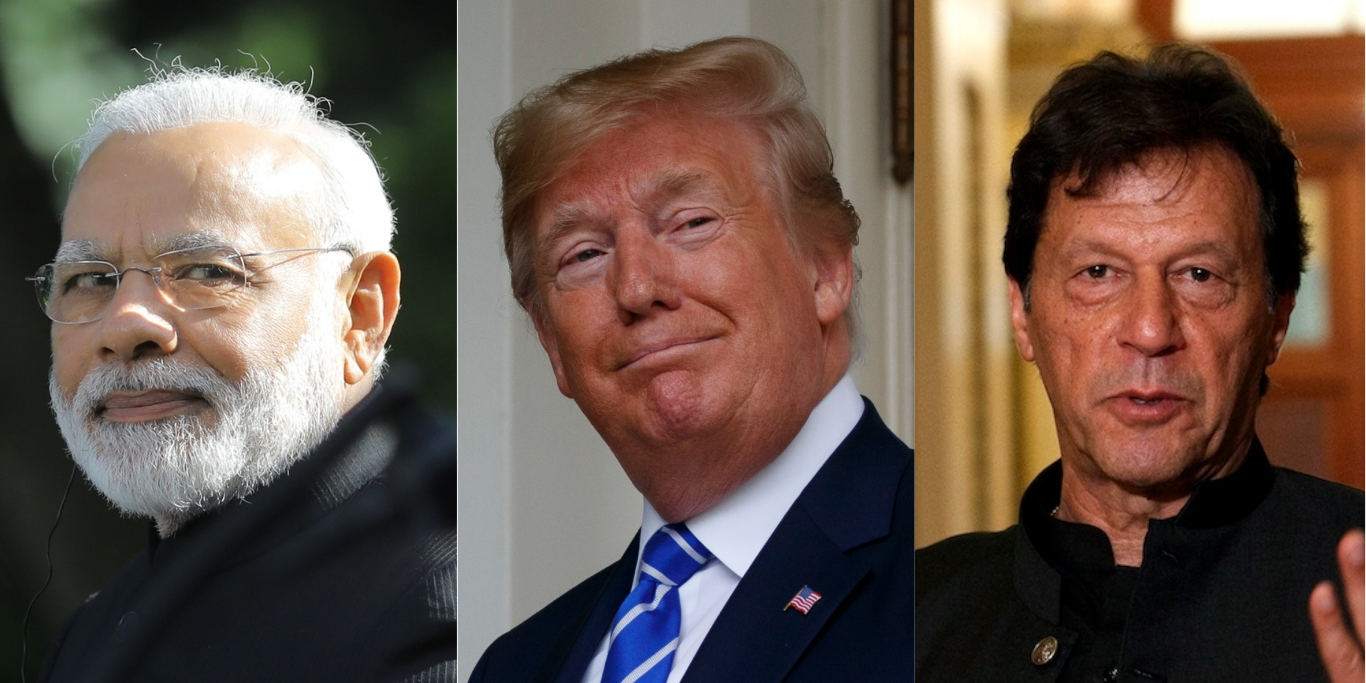- Tensions over Kashmir, the border region between India and Pakistan, are at a boiling point after India on Monday changed its constitution to remove the region’s quasi-independence.
- Before the situation escalated, during a meeting with Pakistan Prime Minister Imran Khan two weeks ago, US President Donald Trump offered to mediate the conflict.
- Joshua White, a South Asia expert, said at the time that Trump’s actions “raise serious questions” about whether the US can be taken seriously in the region.
- Khan on Monday called on Trump to make good on his offer. But the president has not responded, and the US State Department has been cautious to do no more than observe what is happening.
- Visit Business Insider’s homepage for more stories.
Fifteen days ago President Donald Trump, with characteristic ease, offered to personally help resolve the decades-long, often violent conflict between India and Pakistan over the disputed region of Kashmir.
“If I can help, I would love to be a mediator,” Trump said during an Oval Office meeting with Imran Khan, the Prime Minister of Pakistan.
Trump also said that Narendra Modi, the Prime Minister of India, had already asked him to help, though India has denied this.

This week, the situation in Kashmir came to a head. India revoked the region's quasi-autonomous status with a change to the national constitution.
It sent in thousands of troops, cut the internet for many people, ordered tourists to leave, and placed politicians there under house arrest.
With tensions at their worst in years, Khan suggested that Trump could make good on his offer to strike a deal and resolve the conflict.
But, with the stakes so high, the US has taken pains to keep out.

The State Department on Monday issued a bland statement on developments in Kashmir.
It said repeatedly that US authorities simply "note" the developments in the area, but neither offered a solution nor repeated the president's offer.

The Kashmir flare-up came as the US was consumed with domestic politics, grappling with two major mass shootings in El Paso, Texas, and Dayton, Ohio, over the weekend.
India tells Trump to clear out, as Pakistan asks him to wade in
India has continually stressed that Kashmir is a regional affair that doesn't concern the US. Meanwhile, Pakistan has appeared keen for Trump to enter the fight.
Khan, Pakistan's prime minister, tweeted on Sunday as Indian troops moved into Kashmir: "President Trump offered to mediate on Kashmir. This is the time to do so."
Khan is meeting with his country's parliament on Tuesday to discuss the situation.
President Trump offered to mediate on Kashmir. This is the time to do so as situation deteriorates there and along the LOC with new aggressive actions being taken by Indian occupation forces. This has the potential to blow up into a regional crisis.
— Imran Khan (@ImranKhanPTI) August 4, 2019
After Trump offered to arbitrate on Kashmir the Oval Office, Khan said: "Right now, you would have the prayers of over a billion people if you can mediate," according to the White House pool report.
Shortly afterward, Indian foreign ministry spokesman Raveesh Kumar tweeted: "It has been India's consistent position that all outstanding issues with Pakistan are discussed only bilaterally."
"The Shimla Agreement & the Lahore Declaration provide the basis to resolve all issues between India & Pakistan bilaterally," he added, referring to two treaties that emphasize a bilateral approach to solving conflicts over Kashmir.
Pakistan has been trying to extract itself from the Shimla Agreement, Joshua White, a South Asia expert at Johns Hopkins University, told Business Insider's Ellen Ioanes last month.

'India has every incentive to stall and to keep third parties out'
Though Washington has good relations with both New Delhi and Islamabad, "India has every incentive to stall and to keep third parties out," White said.
This is because India controls more territory in Kashmir - 45% to Pakistan's 35% and China's 20%, White said. It suggests that India thinks it has more leverage in negotiations over Kashmir.
"The strategic logic of the US-India partnership is still strong, but statements like this one made raise serious questions in India about whether the US is a reliable partner," White said.
"It probably further sows seeds of concern among Indian officials about what kind of partner the US will be in the future."

Here's the State Department's full Monday statement on Kashmir, via Voice of America:
"We are closely following the events in the state of Jammu and Kashmir. We take note of India's announcement revising the constitutional status of Jammu and Kashmir and India's plan to split the state into two union territories.
"We note that the Indian government has described these actions as strictly an internal matter.
"We are concerned about reports of detentions and urge respect fo individual rights and discussion with those in affected communities.
"We call on all parties to maintain peace and stability along the Line of Control."
The UN on Monday also called on India and Pakistan to "exercise restraint."
"We are following with concern the tense situation in the region," UN spokesman Stephane Dujarric said, according to the AP. "We're also aware of reports of restrictions on the Indian side of Kashmir, and we urge all parties to exercise restraint."

